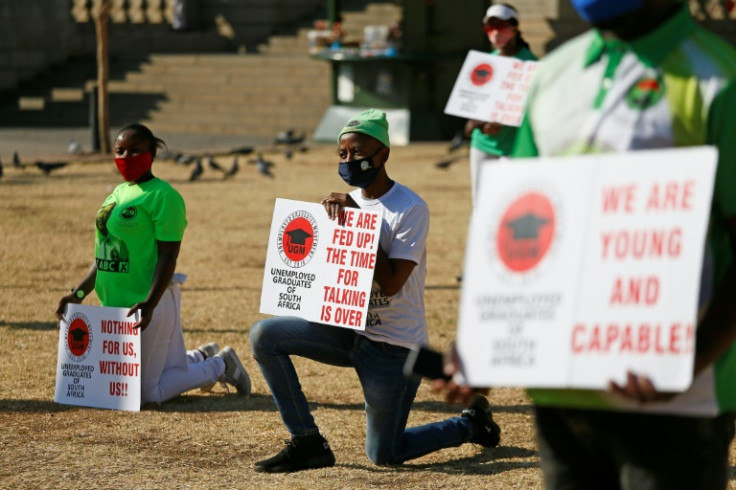With Few Jobs Available In South Africa, Illegal Mining Turns To Gold

South African police are reported to be afraid of the illegal mining rings as they are armed and fight violent turf battles with rival groups.
They are clueless, as the lucrative trade is dominated by transnational networks of immigrants. South African police are probing the discovery of 21 bodies near an active mine in Krugersdorp, west of Johannesburg, suspected to be illegal miners.
Police believe the bodies were moved to the privately-owned mine after the victims breathed their last. The grim discovery is related to illegal mining in the Krugersdorp area.
Raids are conducted frequently. In a major operation in July, a special task force backed by helicopters and a spotter plane raided the Nuttabooi site to pick up 100 people along with 130 generators and 121 jackhammers. However, within a few days, the illegal miners were back with a bang.
Industry bodies like Minerals Council estimate the country spends R2.5-billion annually on the security of active mines, which are targeted by locals and immigrants who use bribery and intimidation to secure access.
South Africa, Africa's second-largest economy, has one of the highest unemployment rates, according to the United Nation's International Labor Organization. The country recorded an unemployment rate of 35.3% in the fourth quarter of 2021, the highest since 2008.
South African mines were once considered jewels in the crown of the nation's economy. In 1987, when South Africa was still the world's top gold producer, its bullion mines employed 554,000 people, including expatriates from neighboring nations.
At that time, remittances by Lesotho nationals working in South Africa's mines amounted to an astronomical high of 236 percent of the mountain kingdom's GDP. Currently, it is reduced to a mere 21 percent. Lesotho nationals call it 'remittance shock.'
Due to mechanization and tardy management of mines, that number of workers currently stands at 94,000 and South Africa does not figure among the top 10 for production.
The Nuttabooi mine in the coastal town of Kleinzee was once owned by diamond giant De Beers, and it formed the backbone of the region's economy. Though vast quantities of diamonds were fished out, the region still has unpaved roads.
Of late, rising operational costs and a dwarfing supply have made large-scale mining unviable. The region's unemployment rate has created opportunities for desperate young men and women to try their luck despite the hardships and dangers associated with abandoned mines, like entering inside a tunnel barely tall enough to crawl through while scouting for diamonds, gold, coal, and chromite.
But with some crude basic tools and a little knowledge of geology, they often succeed in eking out a living from abandoned and active mines. Smaller mishaps occur frequently but they are often unreported.
Locally known as zama-zamas (artisanal miners), unlicensed miners are thriving on South Africa's wild and diamond-rich Atlantic coast, fueled by unemployment, the impact of the pandemic and the rising cost of living. Political and economic unrest in neighboring countries further adds fuel to the frying pan.
Initially, the illegal syndicate tried its hands with 6,100 abandoned or ownerless mines in the country. Once they tasted blood, they moved to operational mines, too.
South Africa's minister of Mineral Resources and Energy, Gwede Mantashe, has termed illegal mining a "plague" amid reports of rampant corruption, extortion and violence.
Activists have petitioned the government to formalize zama-zama mining, to create safer working conditions and a fairer marketplace for local diamonds, extracted using traditional tools. But the government is in no mood to listen.
South Africa's has done little to address the toxic legacy of communities living near ownerless mines. Only 27 mines of the 2,322 classified as high-risk, have been cleaned up since 2009, South Africa's auditor general said in 2021, according to Human Rights Watch.
The high unemployment rate is taking zama-zamas to these forever mines.
© Copyright 2025 IBTimes IT. All rights reserved.





















